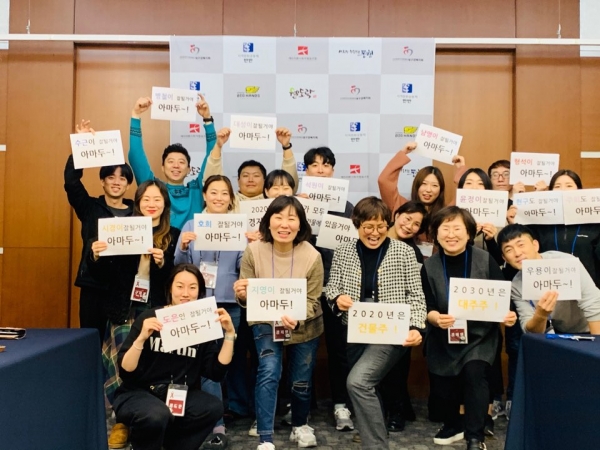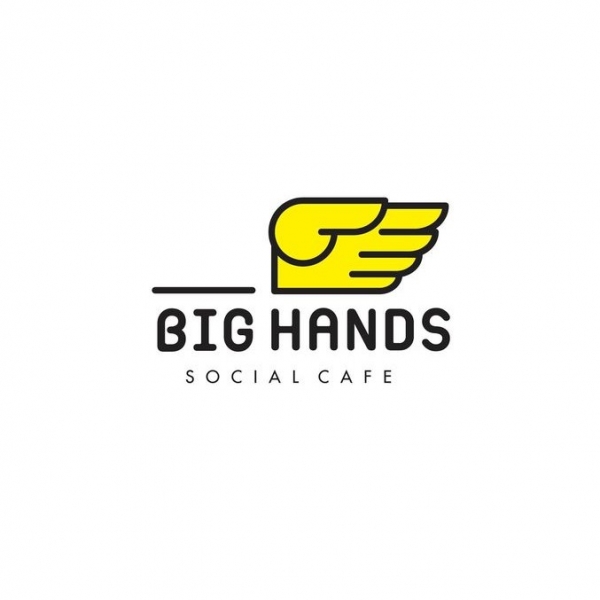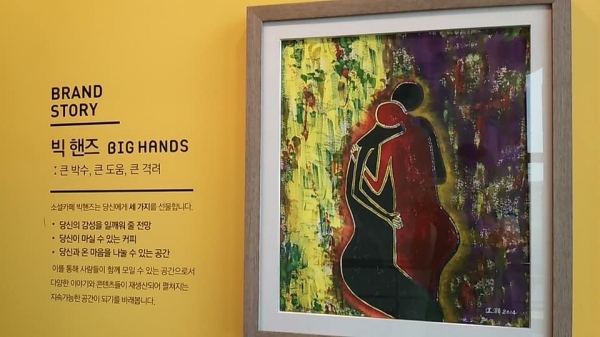Living with HIV/AIDS is a burden that many face, but few are willing to be open in public with their condition. This is due to the negative and often harsh social stigmas against patients suffering from HIV/AIDS. In Korea, it is not uncommon for patients to be outcasts of mainstream society. However, and encouragingly so, there are now a growing number of support groups and organizations that are playing key roles in dispelling mistakenly held social stigmas from patients.
Red Ribbon Social Cooperative (RRSC) is a social enterprise that operates BIG HANDS, a social café for self-help and awareness improvement of AIDS patients in Korea. BIG HANDS is the first social café in the country for people living with HIV/AIDS and those without. It provides an open cultural space to improve the negative perceptions of the disease and provides professional barista training that attempts to address isolation and joblessness issues experienced by patients. The café uses all profits for public service in HIV/AIDS recognition projects.

RRSC is a symbol of the HIV/AIDS movement that opened in July 2013. Kim Ji-young, chief director of RRSC, said that dedicating her life to social activities has always been her destiny.
“As soon as I graduated from college, I devoted myself to NGO activities,” Kim said. “It was when I had a lot of admiration for exploring unchartered territory. Looking back now, I do not think this path was a calling for me but rather I was the chosen person. AIDS was more than a conviction to me, and it seems to be a driving force until now.”
Kim added that at first, the members of RRSC were also uncertain about founding a social café, since people were anxious about safety and productivity. The most difficult part was gaining the attention of HIV/AIDS community who were willing to come forth despite the perceptions towards them. Two patients eventually decided to help RRSC and join the group of founders with BIG HANDS.

The BIG HANDS logo that resembles a winged hand with a bright yellow background was first created to inspire a welcoming sensation. According to Kim, the yellow color was chosen so that people can feel the bright and powerful energy when they enter the café.
With no other models to follow running a social café that is involved with the HIV/AIDS community in Korea, Kim’s approach had to be pioneering, but it also placed some burdens on herself and the members. They often feel overwhelmed with the numerous outdoor activities they conduct, but continue to work by imaging a future with no prejudice towards the HIV/AIDS community.
RRSC has always had the ambition of dedicating a whole building to social movements on HIV/AIDS. However, even though solidarity and cooperation is necessary for the social enterprises to survive, scarce resources tend to spark competition between organizations. The New Harmony Building was built to help community-based businesses and give them a base of operations removing the problem of competing for limited resources in their collective movement towards their ideals.

The New Harmony Building is five stories high and BIG HANDS flagship is located on the first floor. RRSC and the Korean Alliance to Defeat HIV/AIDS are on the second, with social housing on the top floor. The housing on the top floor is a safe-space and a shelter for HIV/AIDS patients without family or friends.
Kim said that another HIV/AIDS epidemic could break out someday in the future and could happen in different places, to different people, and would create different memories. According to Kim, it is necessary to create a new community for people outside the borders of the HIV/AIDS community through various outreach activities between patients and outside communities.
“I hope there will be more opportunities for communication, work, and education with infected people,” Kim said. “I hope the RRSC and BIG HANDS are at the center of helping patients escape the shadow of life.”

